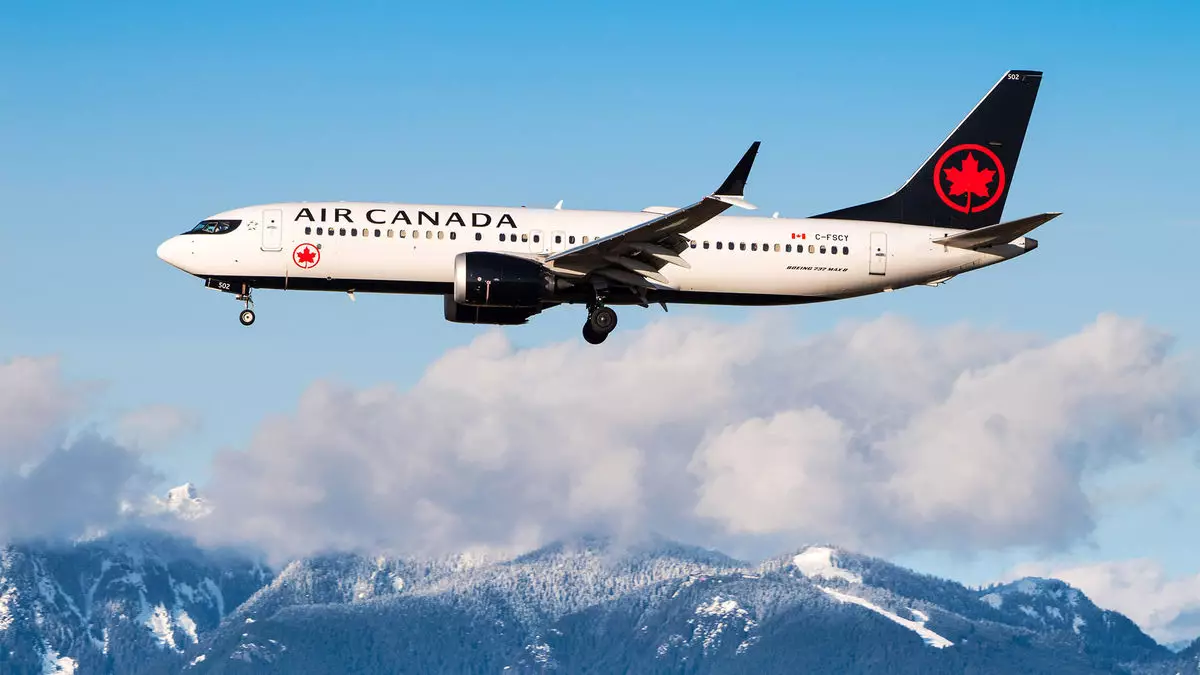The ongoing strike by Air Canada’s flight attendants exposes a fundamental clash within modern workplaces: the tension between corporate profitability and fair labor recognition. The union’s refusal to return despite critical legal orders signifies a bold stance, underscoring the deep-rooted issues that transcend mere contract negotiations. This conflict is more than a labor dispute; it’s a powerful assertion of workers’ rights to dignity, fair pay, and respect. Air Canada’s attempt to enforce a legal order to resume work appears increasingly impotent amid persistent union resistance, highlighting a critical question: who truly holds the power in this scenario?
This persistent defiance reveals that labor unions are more than just negotiating bodies—they are platforms for collective strength and societal values. When workers push back against what they perceive as unfair treatment, it often sparks broader debates about the balance of power, economic justice, and the moral responsibilities of corporations. In this case, the union’s stance suggests a dissatisfaction not only with pay but with the larger systemic issues surrounding unpaid work and workplace respect.
The Impact on Travelers and National Reputation
The consequences of the strike extend beyond the immediate parties involved, affecting thousands of travelers and Canada’s overall reputation. During peak summer travel season, the disruption impacts approximately 130,000 individuals daily, ranging from leisure tourists to crucial business travelers. For many, particularly vulnerable populations such as medical patients or international visitors, these delays are not mere inconveniences but potentially life-threatening situations.
The human toll of such disruptions is often underestimated amidst headlines of legal battles and union politics. For example, tourists stranded and facing days of uncertainty are left grappling with not just missed flights, but with anxiety and logistical nightmares. John and Lois Alderman’s story exemplifies this: their health concerns and the looming threat of running out of essential medication highlight the real human stakes behind this labor struggle. These stories should serve as a serious reminder that behind corporate negotiations are everyday lives that depend on functional, respectful transportation systems.
Legal Constraints and Government Intervention
The legal landscape governing this dispute is complex, reflecting a broader societal debate about workers’ rights and governmental authority. Canada’s industrial relations board has declared the strike illegal and ordered the employees back to work; yet, the union’s defiance signals a profound mistrust of these legal measures and the authority of the state. The fact that the union is willing to risk fines or legal penalties underscores their determination that the issues at hand—mainly compensation and unpaid work—are too significant to be compromised through enforcement alone.
This resistance raises pressing questions about the efficacy and fairness of laws that restrict workers’ ability to strike. Historically, strikes are a vital tool for workers to leverage fair treatment; when legal frameworks undermine that power, it can foster resentment and deepen conflicts. The union’s stance suggests that previous negotiations have failed to address their core concerns meaningfully. Their willingness to face potential jail time reflects not recklessness but an unwavering belief that systemic change is necessary.
The Broader Economic and Political Ramifications
This strike is a microcosm of larger societal issues rooted in economic inequality and corporate dominance. The airline’s persistent push for a swift resolution contrasts sharply with the union’s steadfast refusal, revealing a power dynamic where profit motives often overshadow employee welfare. The government’s repeated intervention—by declaring the strike illegal and ordering arbitration—exposes an underlying tension: should the state prioritize unrestricted economic activity or protect workers’ rights?
Furthermore, the ongoing dispute raises questions about the long-term sustainability of such labor practices. If employees continuously feel undervalued and disregarded, the risk of future conflicts escalates, potentially destabilizing entire industries. The airline industry, with its fame for financial gains, is now embroiled in a crisis that could tarnish its reputation and jeopardize trust among consumers and employees alike.
The Moral Imperative for Systemic Change
At its core, this dispute is a stark reminder that industrial relations are about more than just contracts—they are about human dignity. When flight attendants spend unpaid hours working or when their role is undervalued, it signals a broader societal failure to recognize the essential contributions of frontline workers. Their willingness to stand firm illustrates a profound desire for respect, fair compensation, and acknowledgment of their role in keeping global commerce and community life running.
The union’s courageous stance highlights that systemic change is imperative. It’s not enough to pass laws or issue orders; meaningful reform demands addressing the root causes of worker discontent—fair pay, safe working conditions, and genuine respect. As this dispute unfolds, it becomes clear that the future of fair labor relations hinges on recognizing that workers are not mere commodities but vital contributors whose dignity must be preserved. Only then can a truly equitable and sustainable working environment be achieved, and only then can society move toward a more just and respectful future.


Leave a Reply